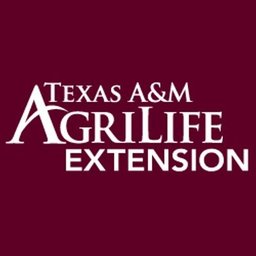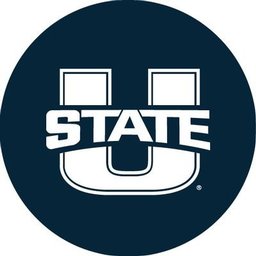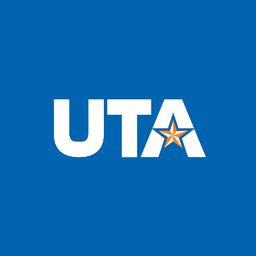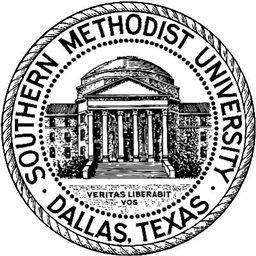 Texas A&M AgriLife Extension
Texas A&M AgriLife Extension
Academic Advisor Iii
LOCATION
College Station, Texas
QUALIFICATIONS
Bachelor's degree and 4 years of advising experience; knowledge of academic advising principles, strategies, and student success outcomes; proficiency in various advising technologies and communication methods.
RESPONSIBILITIES
Advise graduate students on academic and career goals, assist with registration and procedural issues, conduct administrative tasks related to degree requirements, provide collaborative leadership and training for academic advising, and participate in professional development activities.
INDUSTRY
Higher Education
SHORT DESCRIPTION
The Academic Advisor III will engage with graduate students to enhance retention and academic success while mentoring other advisors and contributing to the academic advising community.
- Texas A&M AgriLife Extension Service
- Texas A&M AgriLife Research
- College of Agriculture and Life Sciences at Texas A&M University
- Texas A&M Forest Service
- Texas A&M Veterinary Medical Diagnostic Laboratory
- Assisting students with course registration processes with the Office of the Registrar.
- Advising students on milestones/processes/procedures with GPS, ISSS, the Office of the Registrar, and other university student service offices.
- Explaining hold resolution process to students with academic or registration holds
- Serving as a liaison between graduate students and GPS by advising on procedures, problems, administrative issues, etc.
- Providing referrals to resources for student crises, grievances, mental health issues, and academic misconduct (cheating, plagiarism, disruptive behavior, etc.).
- Notifying students when they are scheduled to get holds and to apply holds for failure to meet deadlines dictated by departmental and university policy.
- Maintaining a listserv of active graduate students in the department.
- Sending routine emails to students to advise them of GPS deadlines, professional development opportunities offered on campus, funding opportunities available through GPS and university, other events, and existing, revised, and new policies.
- Available for regular walk-in/drop-in and by-appointment advising on a routine basis
- Providing prospective students with information on the processes and deadlines for admission; referring prospective students to the appropriate departmental representatives for admissions questions (e.g., admissibility, faculty selection, etc.).
- Responding to email/phone/in-person inquiries about the graduate program application requirements and processes from prospective students.
- Answering general questions about the graduate program, college, university, etc. (e.g., the difference between a Master of Agriculture and a Master of Science degree, thesis vs. non- thesis, 96-hour doctoral programs, etc.)
- Communicating with incoming students about new graduate student processes and requirements, participate in the new student orientation to provide advising-specific information, and field questions about processes such as registration, ARCS, DPSS, etc.
- Serving as the pre-committee staff approver for DPSS.
- Evaluating degree plans for GPS requirements before approval
- Verifying degree requirements for graduation, e.g., graduation clearance
- Maintaining a list of graduate students expecting to graduate in the current and upcoming semesters to inform and communicate with them about impending deadlines.
- Maintaining and tracking degree milestones for graduate students, including proactive communication of upcoming milestones as well as next steps for missed milestones
- Providing input or content creation on advising-specific sections of graduate student handbooks
- Sending a complete offer letter prepared by the department to admitted students
- Uploading signed offer letter to WebAdmit and changing student status to “Admitted”.
- Assist in providing reports and data analysis of advising initiatives and special populations.
- Communicating/interacting with departmental faculty/staff regarding students in the program.
- Serving as a non-voting member on the curriculum committee and/or scholarship/award committee, if requested by the department. There will be, at most, one advisor per committee.
- Providing a list of enrollment status (registered credit hours) to departments, business offices, or the Dean’s office to facilitate their review for assistantships, funding, etc.
- Working with program administrators to coordinate advising activities/sessions with new students during the new graduate student orientation period.
- Conducts research on topics within the field of academic advising and organizes activities for professional development.
- Develops and delivers training for faculty and staff on advising tools and strategies, campus resources and relevant updates.
- May supervise student employees to assist with administrative advising duties and programming.
- Serves as a resource for Academic Advisor I and II with the college/school.
- Discusses and refers students to appropriate campus resources for mental health issues.
10% Training and Development
- Up to 10% training and development per year to complete in-class and on-the-job training programs, which may include shadowing, departmental/college/school trainings, university training, university, state, and national advisor meetings, regular staff and supervisory meetings, and other activities approved by the supervisor. Trainings must include:
- Advisor Onboarding Training (new to TAMU hires)
- Becoming an Academic Advising Leader
- Note: Time reserved for training and development may be adjusted based on employee performance and supervisor discretion.
- NACADA’s Core Values of Academic Advising:
- Theories relevant to academic advising.
- Academic Advising models, approaches, and strategies.
- Professional standards and ethical guidelines for academic advising.
- Legal guidelines of advising practice, including privacy regulations and confidentiality.
- Expected student learning outcomes of academic advising.
- Expected student success outcomes of academic advising.
- The characteristics, needs, and experiences of major and emerging student populations.
- How equitable and inclusive environments are created and maintained in advising interactions for major and emerging student populations.
- Resources and effective, appropriate responses to address mental health issues that may affect the well-being of students.
- Curriculum, degree programs, and other academic requirements and options, to include changes and revisions over time.
- Critical partners for academic advisors and their role in the advising process.
- Campus and community resources that support student success.
- Information technology applicable to relevant advising roles.
- Methods and techniques for managing and/or supervising others.
- Project management principles and processes.
- Professional standards and ethical guidelines for coaching, coaching models, and methods and techniques to evaluate the effectiveness of coaching.
- Training methods and techniques for planning, designing, developing and delivering instructional content that is engaging, effective, relevant, and applicable to achieve desired learning outcomes.
- Coaching and mentoring all academic advisors within the program area.
-
Conducting research and developing and delivering training, to include:
- Topics within the field of academic advising, including organizing activities for professional development.
- Advising tools and strategies, campus resources, and relevant updates for faculty and staff.
- Supervising student employees to assist with administrative advising duties and programming.
- Articulating a personal philosophy of academic advising in alignment with NACADA models, strategies, and approaches.
- Discussing and referring students to appropriate campus resources for mental health issues.
- Promoting student understanding of the purpose and underlying rationale of the curriculum to set expectations for student learning.
- Identifying high-risk indicators, as reported by faculty, to ensure student success.
- Engaging in ongoing assessment and development of self and the advising practice
- Planning and/or delivering various department related advising, student success, retention events and academic campaigns.
-
Creating rapport and building academic advising relationships, to include:
- Guiding, coaching, and/or mentoring students.
- Collaborating with critical partners.
- Communicating in a respectful, and confidential manner using various communication approaches and modalities.
- Planning and conducting advising interactions to achieve student learning and student success outcomes, operating within your scope of authority, and connecting students to resources.
- Demonstrating high ethical standards in advising.
- Facilitating problem-solving, decision-making, and meaning-making for students through the advising process.
- Facilitating planning and goal setting, both short-term and long-term, to achieve individual learning targets and enable future readiness for students through the advising process.
- Evaluating the impact of academic advising on student learning outcomes through data analysis.
- Using appropriate academic advising technologies to support students, including providing reports for advising initiatives and special populations.
- Texas A&M University’s history, mission, vision, values, and culture.
- The history and role of graduate academic advising in higher education and at Texas A&M University.
- Texas A&M University policies, procedures, rules, and regulations relevant to graduate academic advising.
- Health, dental, vision, life and long-term disability insurancewith Texas A&M AgriLife contributing to employee health and basic life premiums
- 12-15 days of annual paid holidays
- Up to eight hours of paid sick leave and at least eight hours of paid vacation each month
- Automatic enrollment in the Teacher Retirement System of Texas
- Employee Wellness Initiative for Texas A&M AgriLife
Tailor Your Resume to Match this Job!
Share with Friends!
Similar Jobs

Texas A&M University

Utah State University

California State University, Monterey Bay

U.S. Coast Guard

University of Texas at Arlington

Southern Methodist University